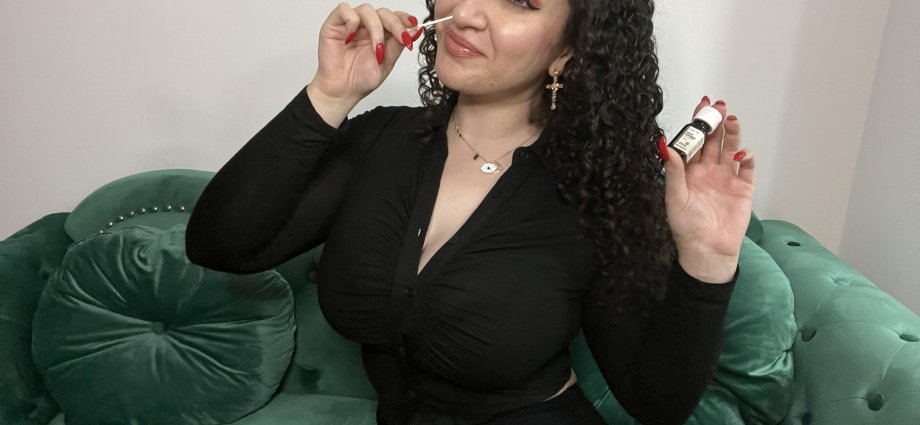ONE of the hallmark symptoms of the novel coronavirus has been the loss of taste and/or smell.
I too lost my sense of smell when recovering recently from Covid-19 – leaving me unable to smell a thing for several days.

I tried popular methods I found on TikTok in a last ditch effort to restore my sense of smell[/caption]
As someone who enjoys the aroma of house sprays, incense and perfumes — the sudden onset of anosmia was distressing.
Desperate for a quick fix and with plenty of time to spare, I did what any lifestyle reporter would do from quarantine — scrolled on TikTok.
To my surprise, my search turned up several remedies, many of which I already had the ingredients for at home.
First I tried the a viral essential oil hack to repair my loss of smell, inspired after watching a viral video on TikTok showing someone immediately getting their sense of smell back.
The hack consisted of lining the inside of the nose with coconut oil to protect the skin, followed by peppermint oil – hoping to get my smell senses going.
Shockingly, I felt the hack work as soon as the peppermint oil hit my nose. I tried smelling a bottle of perfume, however, and the scent was distorted.
Later that day, I noticed I was able to clearly smell my peppermint castile soap as well as my toothpaste.
The discovery led me to believe that there may be some merit to the hack, which needed to be built upon.
I added rosemary and eucalyptus essential oils to my thrice-daily regimen to repair my sense of smell.
I was sure to use a separate cotton swab to apply the oils to the inside of my nostrils to prevent any cross-contamination.
After three days, I noticed most of my senses are back, but I couldn’t shake off the concern about potential long-term damage to my smell from the virus.
Seeking out more viral remedies, I found many influencers touting an antioxidant supplement called alpha-lipoic acid (ALA).
The testimonies matched up with the science, as ALA is often recommended to cancer patients undergoing chemotherapy to repair anosmia.
Excited about the information I obtained, I reached out to Dr. Carol Cooper, who reassured me that my initial freak out over losing my smell was warranted.
“The symptom isn’t trivial,” she said. “Smell is linked with taste and appetite, and its loss can be distressing. There’s also a safety angle if you can’t smell fire or food that went bad.”
Dr. Cooper added that a technique called “olfactory training” is currently leading the way for repairing Covid-related anosmia.
“The theory is that it can stimulate and reset the nerve signals that transmit smell,” she told The U.S. Sun.
“Research suggests it can help if you persevere, but it’s less likely to work with complete loss of smell,” she added.
She also confirmed my findings on ALA, but I was also curious about zinc and other supplements which I heard may help with smell-loss.
“So far, zinc hasn’t been promising, but alpha-lipoic acid supplements, which help some cancer patients with anosmia, may be,” she said.
As far as supplements go, ALA is the top choice for experts advising on what to do if you lose your sense of smell from Covid.
“Scientists have looked into treating it with steroids, vitamin A and injections of blood plasma. But most of the studies have been small and not very convincing,” she said.
My daily regimen of olfactory training has certainly helped me, and I will be adding more scents and frequent training to my routine, along with taking ALA supplements.
“Different methods of training have used different smells, some suggested by scientists, others by social media,” Dr. Cooper said.
“The jury is out on a lot of these, but there may be some value in smells like strong flowers, cloves, citronella, mint and eucalyptus,” she added.


I used eucalyptus, rosemary and peppermint essential oils after coating the inside of my nostrils with coconut oil[/caption]












